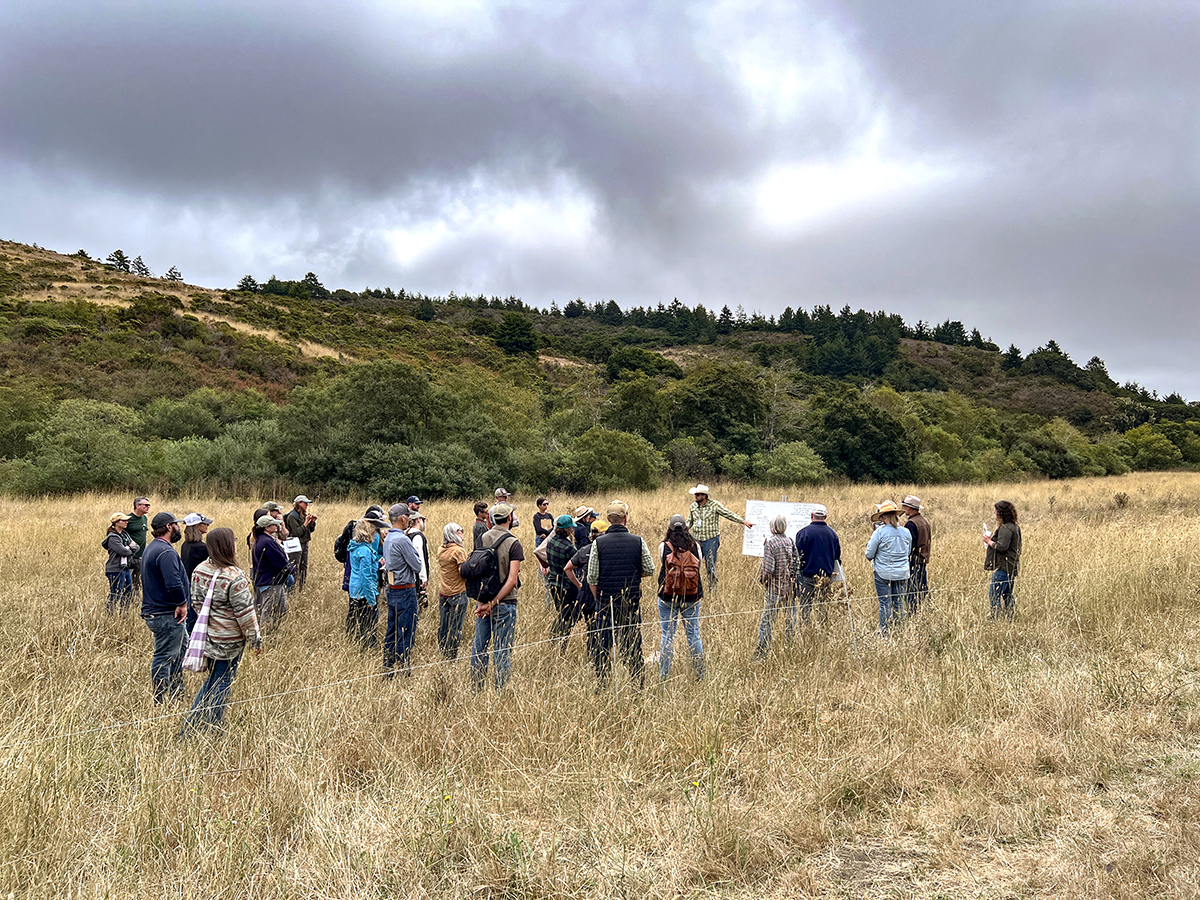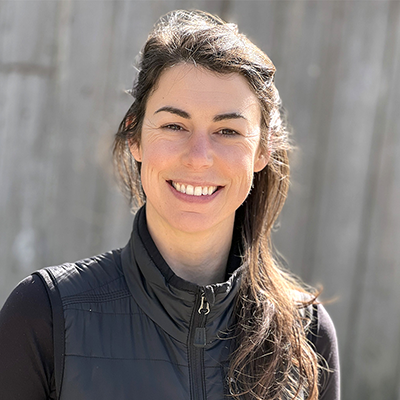TomKat Ranch recently partnered with the San Mateo Resource Conservation District (SMRCD) to host the second session of Regenerative Ranching 101
Highlights from Hosting Grazing Lands Conservation Initiative Workshop with the San Mateo Resource Conservation District

10/23/2024
By: Jessica Hartzell
 TomKat Ranch recently partnered with the San Mateo Resource Conservation District (SMRCD) to host the second session of Regenerative Ranching 101. This workshop series, funded by the Grazing Lands Conservation Initiative, marks a significant milestone in our ongoing commitment to regenerative land management practices and knowledge sharing within our conservation and agricultural communities.
TomKat Ranch recently partnered with the San Mateo Resource Conservation District (SMRCD) to host the second session of Regenerative Ranching 101. This workshop series, funded by the Grazing Lands Conservation Initiative, marks a significant milestone in our ongoing commitment to regenerative land management practices and knowledge sharing within our conservation and agricultural communities.
This second session was designed to provide an overview of grazing planning, practical insights, and related adaptive grazing techniques. We also discussed why TomKat Ranch practices grazing planning, the essential elements of a grazing plan, and shared examples from past experiences.
From the Workshop: Grazing Planning Rules of Thumb
- Match your production calendar with your grass calendar
- Use your tools—timing, duration, location, density
- Fast growth, fast moves; slow growth, slow moves
- Focus on plant recovery, and monitor actual recovery
- Find a paddock number sweet spot
- Plan > Implement > Monitor > Replan… And record on a grazing chart
- Keep it simple to start
Organizing this workshop series has been both rewarding and enlightening. Marshaling our years of ranching knowledge into shareable modules has been a learning experience that has challenged us to distill complex concepts and practices into accessible, actionable information for our peers. This process of distillation gives our team the opportunity to reflect on our journeys in regenerative agriculture.
The San Mateo RCD did a standout job helping us identify key lessons and activities that would allow the program to resonate with both novice and experienced land managers. Their organizational support and partnership on this workshop series have been invaluable.
We are delighted to share our experiences with fellow ranchers and land management practitioners. We are also so excited by the community building made possible by the exchange of ideas and techniques.
Looking ahead, we will continue to refine and expand our workshop offerings with the hopes of reaching an even wider audience of land stewards committed to regenerative principles. Through these educational efforts, we aim to contribute to a more regenerative and resilient agricultural future.